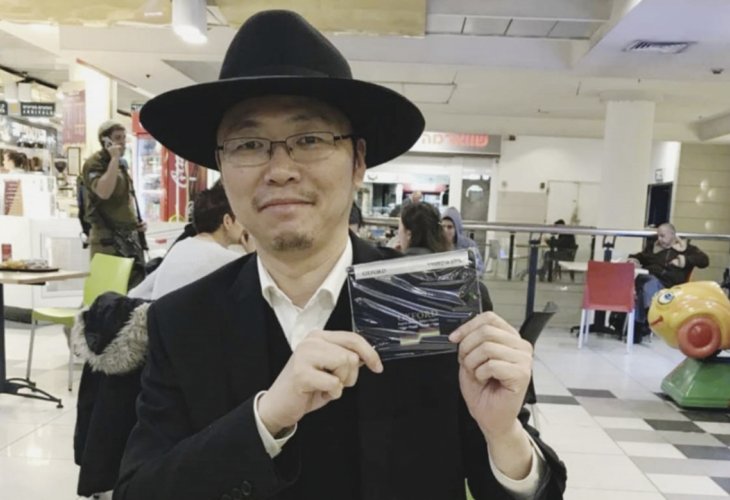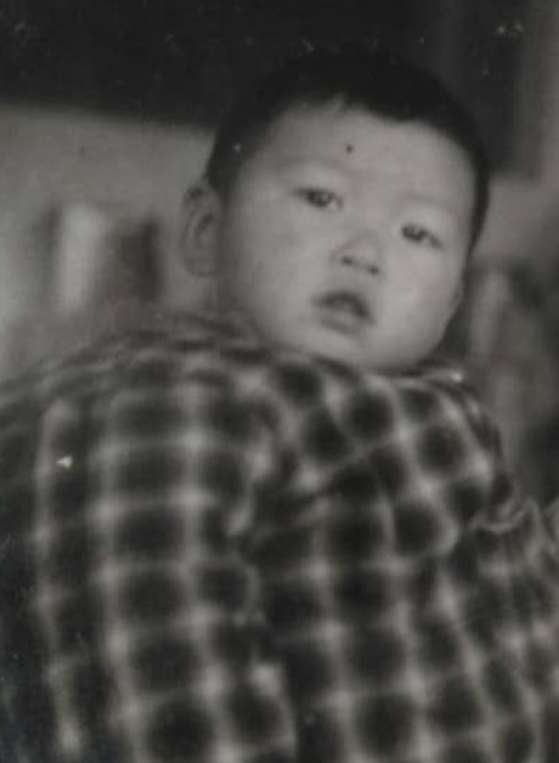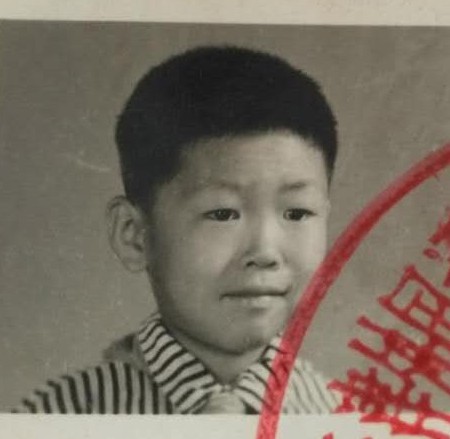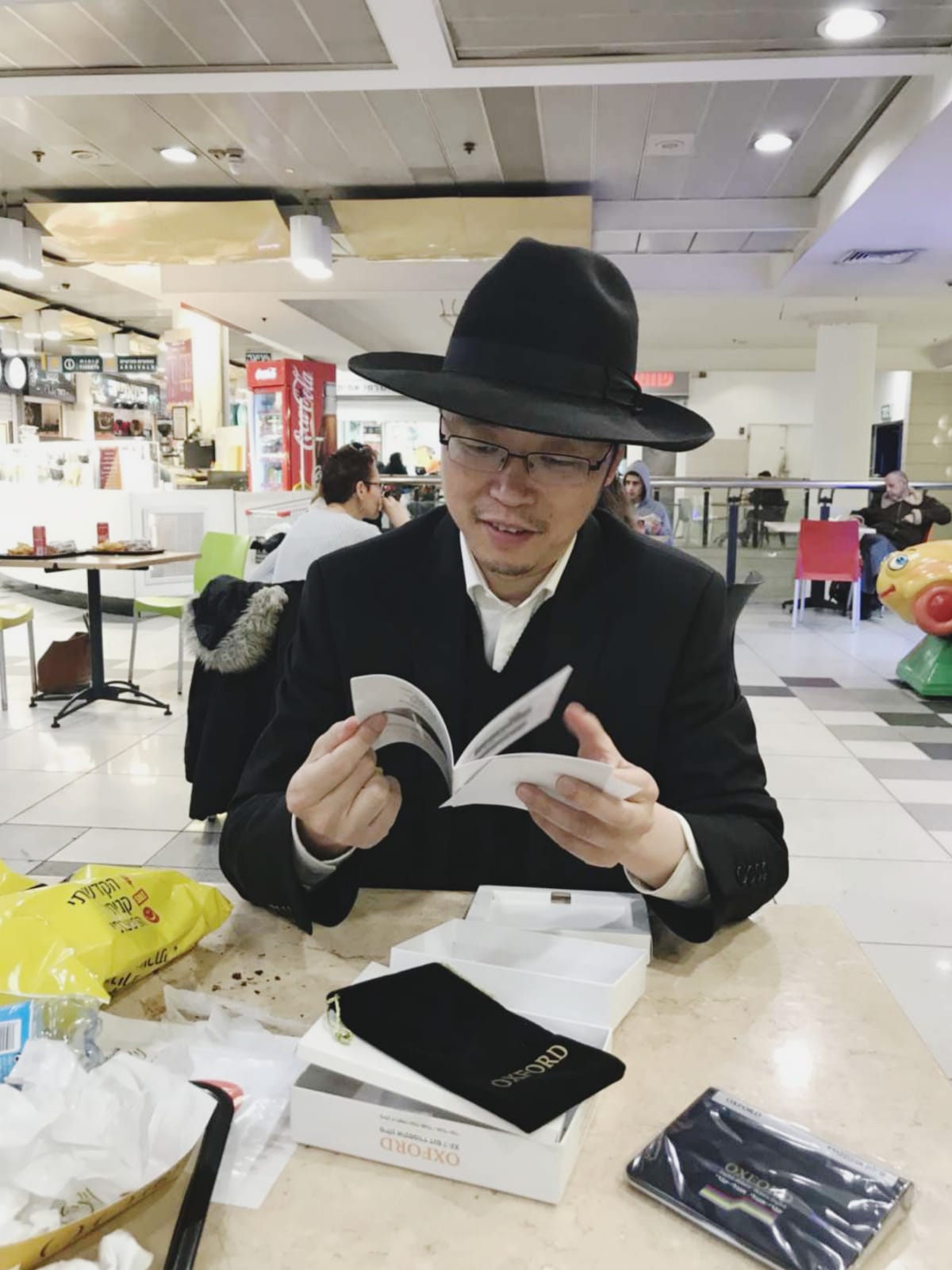The Fascinating Interview with a Chinese Convert: "I Searched for Truth and Found It in Judaism"
Rabbi Aaron Waldman, originally called Chai in Chinese, immigrated to Israel and converted to Judaism. Currently living an ultra-Orthodox lifestyle, he aspires to establish a yeshiva for adults. How did he discover Judaism in communist China, and how does he handle his family's alienation over his transformative decision?
 Rabbi Aaron Waldman (Photo: Private Album)
Rabbi Aaron Waldman (Photo: Private Album)When Rabbi Aaron Waldman, a convert from China, decided to become Jewish, he was swimming against the current of over a billion and a quarter Chinese people living in the world's fourth-largest country. Aaron, known by his Chinese name - Chai, discovered his Jewish spark and motivation to immigrate to Israel amidst modern, communist China, devoid of religious ties.
After immigrating to Israel, he converted and now resides in Bnei Brak, studying and teaching Torah. His spiritual journey in search of roots began in the 1990s. Along the way, he stopped at different stations to test the truths of other religions, but his search for truth led him to the holy Torah. Waldman learned Biblical Hebrew, delved deep into study, and found the truth he'd been seeking. Over a decade ago, he left China, immigrated to Israel to convert and fulfill his essence as a Torah-observant Jew. Today, he is ultra-Orthodox, dressed in a suit, his face adorned with a beard, and a hat on his head. Despite the years since his decision to leave his homeland, his parents and family struggle to accept the drastic change.
In English, his Chinese name Chai translates to Tree, and in Yiddish, Wald, from which his current surname derives. Waldman was born in modern China, which he says resembles the Western world more. "We were not raised on tradition," he says, "we were cut off from our roots." Feeling a spiritual void, Waldman embarked on a journey.
 Rabbi Aaron Waldman - Chai as a child
Rabbi Aaron Waldman - Chai as a childHe is currently unmarried. Recently, he left the northern city of Safed and moved to Bnei Brak, the city of Torah. As stated, he studies and teaches Judaism. "I began teaching Judaism deeply about two years ago, but I realized that only a few people understand that path," he says, "I tried to expose them to a deep level of Jewish studies, but initially, I admit there was resistance. Sometimes the truth is uncomfortable for people, so they don't like you. Concurrently, I established an organized study hall. It's one-on-one learning. Besides that, I study, write books, and have been quite busy in the past two years." When asked about his age, a legitimate question in Israeli culture, Waldman draws a line: "I revert to my American manners and don't reveal. It's a personal matter."
"For more than two years, I've been studying at the Ne'ot Deshe Yeshiva, which has helped me immensely in my life. They accepted me when I needed assistance; the Rosh Yeshiva Rabbi Yosef Brooks and the Torah students extended a hand to me, and I am grateful for that. When I entered, the Rosh Yeshiva ensured I had a study partner who could teach me with great patience. At the time, I didn't understand spoken Hebrew, and he explained the Talmud in clear and simple language. Today, I am capable of learning the entire Torah on my own, but without their help, I couldn't have progressed as quickly. One of the beautiful things I've encountered is the mutual aid. In Bnei Brak, my place of residence, I feel at home with the Weinberg family; they love me, appreciate me, and help me all the time. I feel like their son. Thank Hashem, I have encountered good Jews in my life. I am grateful to Hashem and Israel for accepting me and for the guidance in Torah, commandments, and good deeds".
"My Parents Still Don't Accept Me"
The People's Republic of China is the world's most populous country, with more than a billion and a quarter inhabitants and is the world's fourth largest by area. China borders 14 countries, including North Korea, Russia, Mongolia, Kazakhstan, India, Nepal, and Vietnam. The People's Republic of China was established in 1949; the Chinese regime is considered a one-party regime ruled by the Communist Party of China, though most researchers don't define it as a communist or socialist regime. Associations deemed a threat to the regime (Falun Gong and Tibetan liberation movements) are persecuted by the authorities, and their members frequently face human rights denial. In 2018, an online freedom report marked the People's Republic of China as a global leader in a modern totalitarian government model, adopted by other states attempting to come closer to China.
Waldman’s father and mother reside in China and, according to him, are without religious faith. "They still don't accept me. The situation doesn't improve with them, and yes, it's definitely painful. We're going in different directions, leading to more misunderstanding. Like other family matters, it contains many issues. They saw me since conversion; I've traveled to China several times; they really don't accept me, especially with my Orthodox appearance. In their eyes, it's evil. There is antisemitism in the world, and they think Jews are evil. My parents aren't believers, and I try to find my way to them through mutual respect."
You grew up in a communist country opposed to religious affiliations—how did you hear about Judaism? What did you know about Jews?
"Communism in China is a major topic. When I began exploring religions in the mid-90s, western China was open, the situation started getting better, and I had a lot of information. I discovered Judaism through Christian studies. Ten years ago in China, it was relatively free, and communism wasn’t dominant. I'm a philosophical person; I was seeking truth, which led me to Judaism. I'm always searching for truth." Intensive Jewish studies led him to decide to immigrate to Israel to lead a religious life involving prayer in a synagogue, keeping kosher, and more. In Israel, Waldman felt that he found home. About seven years ago, he converted.
 Rabbi Aaron Waldman - Chai as a child
Rabbi Aaron Waldman - Chai as a childDo you find yourself regretting the step that caused a family rift?
"Of course, I don't regret my decision. There is only one way for me to live, and that is to be Jewish. But there were certainly difficulties along the way. Life doesn’t always go smoothly. There are ups and downs. I understand that. In Judaism, there are also challenges, and I have endured tough situations. I’m a person who confronts things. It's true that in the beginning, it’s all excitement, but then the real and deeper challenge arrives. There are lessons along the way, those are life. Being Jewish doesn’t mean you won’t have challenges, and I have faced many. I’ve also made mistakes, like any person."
After a long stay in Israel, what are your aspirations?
"Today, I study Torah every day with a study partner, and I also teach Torah privately. I found it difficult to establish a business in Safed, so I relocated to Bnei Brak. Besides teaching Torah, I want to establish a yeshiva for adults. I'm working on that now. In the yeshiva, I will teach in my unique method, which only I can teach. I am not inventing something; you cannot invent Judaism; we have the Torah received from Hashem. In the past six years, I have studied Torah day and night, read many books that most people haven’t. I’m not inventing or discovering the truth, but offering a deep learning approach."

Waldman was also exposed to the conflict in Israeli society in the relations between secular and ultra-Orthodox, and the division that exists among the publics. "This is a very sad subject. I distance myself from politics, but in Israel, it's hard to stay away from politics. There is a lot of misunderstanding among the publics, much misunderstanding of the ultra-Orthodox and religious public in general. It's not a homogeneous group of religious people. It needs to be worked on to solve it. We are human beings; we can make mistakes – it needs to be accepted. We need to find a way to communicate and converse between publics in Israel. There needs to be patience and acceptance of one another; I hope in the future Israel’s society will be more friendly. There needs to be fellowship. We Jews are one family; there are so many enemies around and so much malice – how will we defend ourselves if we are fighting? I hope it will be different."
Which commandment do you feel connected to?
"Studying Torah, of course. I tell Jews to study the whole Torah, not just its aspects. More serious study is required to encompass material. Jews, even those who observe Torah and commandments, do not fully realize their educational potential; maximizing the potential's realization is needed to reach deep truth. The aim of Torah study is to draw closer to Hashem, but it must be done in the right manner."

